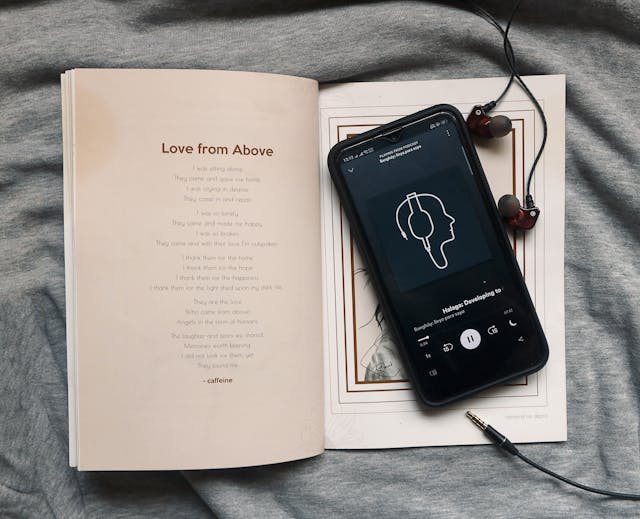Choosing furniture that not only enhances a room but also stands the test of time is a decision rooted in style, craftsmanship and legacy. While fast décor trends come and go, certain pieces carry a lasting emotional and material value—these are the items that endure for decades, sometimes centuries, and become part of a family’s story. Investing in statement furniture is not about following fashion; it is about selecting objects of character and quality that can be cherished, repaired, passed on and admired across generations.
 The difference between disposable furniture and investment pieces lies first in their construction. Mass-produced items often rely on particleboard, stapled joints and veneers that peel within a few years. In contrast, timeless furniture is built from solid hardwoods like walnut, oak or mahogany, joined with dovetails, mortise-and-tenon or doweled techniques that resist warping and keep structural integrity intact for decades. These pieces feel heavier, more grounded and become even more beautiful as they age. They are designed to be used, maintained and repaired—not thrown away.
The difference between disposable furniture and investment pieces lies first in their construction. Mass-produced items often rely on particleboard, stapled joints and veneers that peel within a few years. In contrast, timeless furniture is built from solid hardwoods like walnut, oak or mahogany, joined with dovetails, mortise-and-tenon or doweled techniques that resist warping and keep structural integrity intact for decades. These pieces feel heavier, more grounded and become even more beautiful as they age. They are designed to be used, maintained and repaired—not thrown away.
But beyond materials, there is something more subtle: the way a piece of furniture makes you feel. A well-crafted desk invites you to sit and write. A solid dining table gathers family and conversations. A brass-handled chest of drawers brings order to everyday routines while adding quiet elegance to a room. This emotional connection is why people fall in love with heritage furniture. For those searching for modern yet timeless interpretations, collections from Starbay embody the spirit of legacy furniture, blending exotic woods, refined brass details and travel-inspired elegance into designs made to be treasured for years rather than seasons.
Understanding what makes a furniture piece truly durable starts with its frame. A strong frame relies on solid wood rather than hollow or composite structures. Every joint is reinforced—not only for aesthetic precision but to handle weight, movement and time. In dining tables, the apron and legs should be securely joined, with no wobble. In upholstered chairs or sofas, the frame must resist torsion, and suspension systems should be made of high-quality webbing or springs. These foundations are what prevent creaks, cracks or loose parts after years of use.
Finishes also reveal the difference between something merely decorative and something built to last. Cheap finishes tend to form a plastic-like film that scratches easily and cracks with temperature changes. High-quality finishes use natural oils, waxes or lacquer techniques that allow the wood to breathe, repair over time and develop a soft patina. This surface evolves with you—every mark telling a story instead of becoming a flaw. Hardware such as handles, hinges and clasps in brass or bronze gains charm as it oxidises, unlike coated metals that lose their appeal when scratched.
Statement furniture is often defined by design proportion. A well-balanced cabinet or armoire has symmetry that pleases the eye, even when it breaks convention. Proportions rooted in classical geometry—like the golden ratio—tend to feel natural and elegant across changing tastes. This is why antique pieces and artisanal furniture still feel harmonious today; they are built according to visual logic rather than short-lived trends. When form and function align seamlessly, a furniture piece becomes timeless.
Another characteristic of furniture that lasts generations is modularity or adaptability. A campaign desk that folds for travel, a dining table that extends for guests or a chest that can be divided and transported—these functional designs have survived centuries because they were made to adjust to human needs. Today, this concept translates into furniture that works in different spaces, can be easily moved or repurposed and maintains strength despite being handled regularly. Versatility is a sign of good design and thoughtful engineering.
The emotional responsibility of owning legacy furniture is also part of its charm. Unlike disposable décor, these items carry memories. A console table may remind you of letters written in youth, a chair of late-night conversations or a bed frame of family births and mornings. This emotion cannot be bought in a showroom; it is created slowly, through use and continuity. When furniture is passed from one generation to another, it carries family history—marks of life that no new product can replicate.
Choosing to invest in long-lasting statement furniture is also a sustainable decision. In a world of fast furniture and overflowing landfills, buying fewer but better objects helps reduce waste. High-quality pieces are produced with responsible materials, skilled labour and long-term utility in mind. They do not break after a move, nor do they end up on the curb after three years. Instead, they are restored, refinished and loved anew. Sustainability is not just about recycled materials—it is about durability, repairability and emotional value.
Caring for investment furniture does not require expert knowledge—only consistency. Regular dusting with soft cloths, occasional waxing or oiling, maintaining stable room humidity and protecting pieces from direct sunlight can keep them pristine for decades. Upholstery can be re-covered, wood can be restored, and hardware can be polished or replaced without losing the integrity of the piece. This philosophy turns furniture into legacy—preserved rather than replaced.
When selecting furniture meant to last generations, pay attention to its story. Who designed it? Who built it? Is it handcrafted or mass-produced? A signature, a workshop stamp, or a certificate of origin adds cultural value and traceability. Artisans often leave subtle marks—a carved date, a hidden maker’s symbol—that root the piece in a time and place. This history gives depth to your interiors and differentiates furniture from a simple object to a meaningful heirloom.
Rooms that incorporate statement furniture benefit from contrast and balance. A bold piece such as an exquisite sideboard or a campaign-style desk becomes a focal point when surrounded by simpler elements. The eye lands on it naturally. Yet, balance is key—too many heavy furniture items in a room can make it feel visually crowded. A single timeless item, thoughtfully placed, can elevate the mood and style of an entire space.
Beyond aesthetics, there is an ethical dimension to investing in long-lasting furniture. When you buy from responsible makers, you support craftsmanship, fair labour and sustainable forestry. This is particularly relevant with exotic woods, where regulated sources ensure environmental balance. Buying furniture created thoughtfully—rather than quickly and cheaply—supports traditions that might otherwise disappear in favour of industrial shortcuts.
In the end, what makes a furniture piece worth passing down is not only its beauty or durability—it is the way it becomes part of your life. It holds your books, your souvenirs, your secrets. Its drawers open every morning. Its surface hosts family dinners or quiet reflections. The decision to invest in such a piece is not a purchase—it is a gesture toward continuity, craftsmanship and memory. And that is why true statement furniture doesn’t just fill a room—it builds a legacy.


 Her veil was designed in collaboration with expert artisans who specialise in turning fabric into works of art. Using layers of delicate tulle embroidered with floral motifs, it extended gracefully to the floor, creating a sense of grandeur without overshadowing the gown. The bride wanted something that carried both timeless tradition and modern sophistication. During her search for inspiration, she discovered the artistry behind
Her veil was designed in collaboration with expert artisans who specialise in turning fabric into works of art. Using layers of delicate tulle embroidered with floral motifs, it extended gracefully to the floor, creating a sense of grandeur without overshadowing the gown. The bride wanted something that carried both timeless tradition and modern sophistication. During her search for inspiration, she discovered the artistry behind 

 At its core, a notarized translation is a translation that has been signed by the translator and then taken before a notary public. The notary verifies the identity of the translator, witnesses their signature, and confirms that the translation is a faithful and accurate rendition of the original text. The result is a document that holds legal weight and can be used in official proceedings, including those conducted in court or with government authorities. This is especially critical for documents like birth and marriage certificates, court decisions, academic transcripts, or medical records when submitted in a different language. In many countries, certain governmental departments will reject a translation if it lacks this formal notarization. In these instances, using a service like
At its core, a notarized translation is a translation that has been signed by the translator and then taken before a notary public. The notary verifies the identity of the translator, witnesses their signature, and confirms that the translation is a faithful and accurate rendition of the original text. The result is a document that holds legal weight and can be used in official proceedings, including those conducted in court or with government authorities. This is especially critical for documents like birth and marriage certificates, court decisions, academic transcripts, or medical records when submitted in a different language. In many countries, certain governmental departments will reject a translation if it lacks this formal notarization. In these instances, using a service like 
 Another trend gaining momentum is the rise of full-cast recordings and immersive audio. Inspired by the structure of radio plays and cinematic sound design, these productions incorporate music, ambient effects, and multiple voice actors to create a surround-sound narrative experience. This format is especially popular in genres like fantasy, sci-fi, and historical fiction, where world-building and atmosphere are essential. In 2025, expect more publishers to invest in these large-scale productions as listeners demand richer and more sensory storytelling.
Another trend gaining momentum is the rise of full-cast recordings and immersive audio. Inspired by the structure of radio plays and cinematic sound design, these productions incorporate music, ambient effects, and multiple voice actors to create a surround-sound narrative experience. This format is especially popular in genres like fantasy, sci-fi, and historical fiction, where world-building and atmosphere are essential. In 2025, expect more publishers to invest in these large-scale productions as listeners demand richer and more sensory storytelling.
 The resurgence of traditional crafts in contemporary art marks a significant cultural shift, blending the time-honored techniques of the past with modern artistic expression. This phenomenon can be observed in various forms, from textiles and ceramics to woodworking and metalwork. The convergence of these practices with contemporary art not only highlights the versatility and adaptability of traditional crafts but also underscores their enduring relevance in today’s artistic landscape.
The resurgence of traditional crafts in contemporary art marks a significant cultural shift, blending the time-honored techniques of the past with modern artistic expression. This phenomenon can be observed in various forms, from textiles and ceramics to woodworking and metalwork. The convergence of these practices with contemporary art not only highlights the versatility and adaptability of traditional crafts but also underscores their enduring relevance in today’s artistic landscape.

